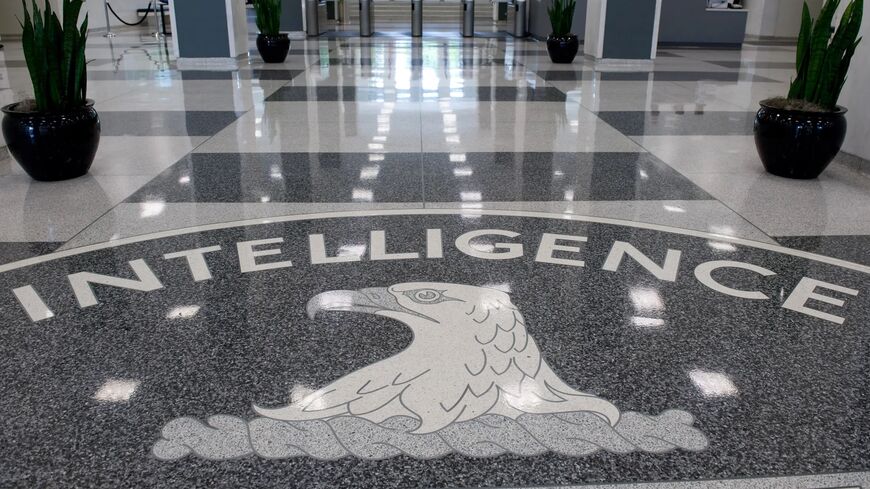WASHINGTON — The Biden administration is racing to contain the diplomatic fallout from what’s shaping up to be one of the biggest intelligence breaches in recent memory. A trove of purported US intelligence materials has leaked online, shedding light on how the United States spies on friends and foes in the Middle East and exposing possible regional deals with Russia.
On Monday, State Department deputy spokesperson Vedant Patel told reporters that US officials are in touch with allies and partners “to reassure them of our commitment to safeguarding intelligence and the fidelity of securing our partnerships."
As the administration does damage control abroad, the Justice Department is investigating the source of the massive leak, which the Pentagon described as posing a “very serious” risk to national security.
Al-Monitor has reviewed many of the leaked documents. Here’s a roundup of the Middle East disclosures:
Israel
A CIA update from March 1 marked "top secret" alleged that Mossad, Israel’s foreign intelligence agency, “advocated for Mossad officials and Israeli citizens to protest the new Israeli government's proposed judicial reforms.” In a statement issued on behalf of Mossad, Prime Minister Benjamin Netanyahu’s office slammed the allegation as “mendacious and without any foundation whatsoever.”
“The Mossad and its senior officials did not — and do not — encourage agency personnel to join the demonstrations against the government,” the statement said.
The purported disclosure comes at a time of heightened tensions between the United States and its closest partner in the Middle East. The Netanyahu-led government — Israel's most right-wing and religious in its history — is pushing judicial reforms that critics say will undermine the country’s delicate system of checks and balances.
Iran
Another leaked report describes Iranian officials strategizing in late February over how to shape domestic public opinion ahead of a visit to Tehran by Rafael Grossi, director of the UN’s nuclear watchdog known as the International Atomic Energy Agency. In early March, Grossi met with President Ebrahim Raisi and other senior Iranian officials after the IAEA revealed it had detected uranium particles enriched to near weapons-grade levels.
Iranian official Mohammad Jamshidi “indicated that movement toward resolution of the safeguards issues was a prerequisite for a meeting” between Grossi and Raisi. Iran has long demanded that the IAEA shut down its yearslong inquiry into alleged safeguard violations at several of Iran's old but undeclared nuclear sites.
According to the leaked intelligence report, the Iranians expected the IAEA to publish a report stemming from a February visit by IAEA officials that would be "neutral in its content, but with the potential to influence the IAEA [Board of Governors]."
Behrouz Kamalvandi, spokesman for the Atomic Energy Organization of Iran, reportedly "indicated that Grossi was prepared to 'defuse the situation,'" and as a result, there would not be a resolution issued against Iran" at the Board of Governors' quarterly meeting in March.
Jordan
Jordanian Foreign Minister Ayman al-Safadi asserted in late February that Amman’s intervention was “necessary to resolve escalating tensions between Israel and the Palestinian territories and the prolonged crisis in Syria,” according to one leaked document.
The document summarizes a purported conversation between Safadi and senior Jordanian Foreign Ministry official Lina Al-Hadid, which occurred a day before Jordan convened Israeli and Palestinian officials for talks in the Red Sea port of Aqaba. According to the leaked report, Safadi said Jordan "took a lot of heat" domestically for arranging the Aqaba Conference at the same time Israeli military operations were ongoing on the West Bank.
The top diplomat “claimed that Jordan had no other choice: If no intervention was taken before the start of Ramadan on 23 March, there would likely be further escalations in violence that could lead to the collapse of the [Palestinian Authority],” a scenario Safadi said Israel sought to avoid.
Turkey
Russia’s shadowy Wagner Group attempted to buy arms from Turkey, according to another leaked document. Citing intercepted communications known as signals intelligence, the document says that in early February, Wagner personnel “met with Turkish contacts to purchase weapons and equipment from Turkey” to support the mercenary group’s efforts in Mali and Ukraine. Assimi Goita, interim president in the West African country, “had confirmed that Mali could acquire weapons from Turkey on [Wagner’s] behalf,” the report said.
NATO member Turkey has supplied armed drones and other weaponry to Ukraine but has not joined in Western sanctions against Russia. The leaked report doesn't make clear whether the Turkish government was aware of Wagner's efforts.
Another leaked report suggests that Turkish companies are helping Belarus evade sanctions on Russian trade. The report, which cites the Turkish trade attache in Belarus, says that “Turkish companies purchased sanctioned goods from Belarus and sold them in European markets, resold goods from Europe to Russia, and used certain banks to mitigate the effects of Turkey's placement on the Financial Action Task Force grey list” of countries that are inadequately combating money laundering and terrorist financing.
Egypt
Egyptian President Abdel Fattah al-Sisi sought to covertly supply Russia with up to 40,000 rockets as well as artillery and gunpowder, according to a leak obtained by The Washington Post. In the document dated Feb. 17, Sisi reportedly instructed senior Egyptian military officials that the transfer should be made discreetly “to avoid problems with the West.”
The North African country has sought to balance its relationships with Russia and the United States, the latter of which has given Egypt billions of dollars in military aid. Egyptian Foreign Ministry spokesman Ahmed Abu Zeid told the Post that “Egypt’s position from the beginning is based on noninvolvement in this crisis and committing to maintain equal distance with both sides.”
White House National Security Council spokesperson John Kirby said Tuesday that the United States has “no indication that Egypt is providing lethal weaponry capabilities to Russia,” adding it remains a “significant security partner.”
United Arab Emirates
Russia’s spies claimed they convinced Emirati intelligence “to work together against US and UK intelligence agencies,” according to another leaked document citing signals intelligence.
“The UAE probably views engagement with Russian intelligence as an opportunity to strengthen growing ties between Abu Dhabi and Moscow and diversify intelligence partnerships amid concerns of US disengagement from the region,” read the document first obtained by The Associated Press.
The Emirati government on Monday rejected the report as “categorically false.” The Biden administration has previously warned businesses in the oil-rich Gulf country against helping Russia evade Western sanctions, and on Wednesday imposed sanctions on multiple UAE-based firms accused of fueling Russia’s war machine.








